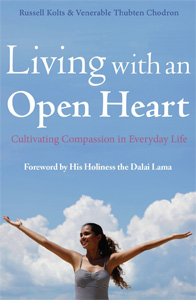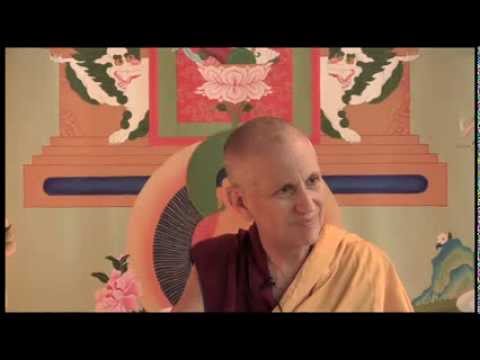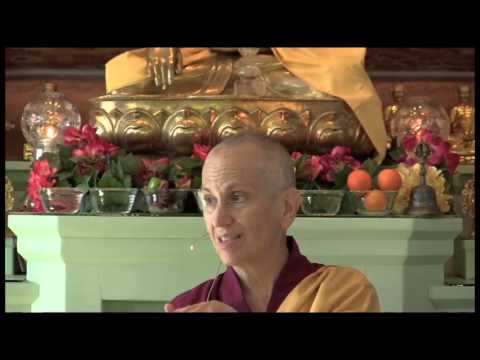Developing a good heart
Foreword to Living with an Open Heart


Buy from Amazon
I always tell people that my religion is kindness, because kindness is “in our bones.” Without kindness, none of us could survive. When we are born we are welcomed with kindness and compassion. Due to the kindness of others, we have food, shelter, clothing, and medicine—all that we need to stay alive. As children, under the care of others, we receive an education and learn good values that help us in life. Having enjoyed the benefits of others’ kindness, it is only natural that we repay it.
However, sometimes our sense of self-interest prevents us from doing so. What’s more, some people say we are genetically predisposed to seek our own benefit regardless of others. I don’t believe we need be confined by such simple instincts. It’s natural for us to pursue our own interests, but we have to do so wisely, not foolishly. And the wise course is to take others into consideration too.
Today, more and more scientists are finding that consciously cultivating compassion has a positive role in brain function and strengthens particular neural pathways. In other words, our marvelous human brains can be transformed in the process of nurturing our best qualities—such as generosity, compassion, love, tolerance, forgiveness, fortitude, patience, and wisdom. And the ancient methods based on reason that the Buddha taught for releasing disturbing emotions and cultivating positive emotions can provide a way to do this.
Our world is increasingly interdependent, but I wonder if we truly understand that our interdependent human community has to be compassionate; compassionate in our choice of goals, compassionate in our means of cooperation and our pursuit of these goals. Compassion affirms the principles of dignity and justice for all. From the Buddhist viewpoint all things originate in the mind. Real appreciation of humanity, compassion and love, are the key issues. If we develop a good heart, whether the field is science, commerce or politics, since the motivation is so very important, the result will be more beneficial. With a positive motivation that takes account of other people’s interests as well as our own, our activities can help humanity; without such a motivation our actions are likely to be detrimental. This is why compassion is so very important for humankind.
I am especially pleased that this book, Living with an Open Heart: Cultivating Compassion in Everyday Life, has been written by a psychologist and a Buddhist nun working together. The respective traditions to which they belong are both rich in knowledge and wisdom, and have much to share with and learn from each other. Having been involved in a dialogue between modem science and Buddhist science for many years, I’m happy to see others taking part and enriching the conversation. The authors present the topic of compassion in language that is easy to understand and in ways that are appropriate for people to apply, whatever faith, or none, to which they belong. The short reflections at the end of each entry give readers simple, yet effective means to begin to cultivate the most beneficial of human qualities—compassion.
His Holiness the Dalai Lama
His Holiness the 14th Dalai Lama, Tenzin Gyatso, is the spiritual leader of Tibet. He was born on July 6, 1935, to a farming family, in a small hamlet located in Taktser, Amdo, northeastern Tibet. At the very young age of two, he was recognized as the reincarnation of the previous 13th Dalai Lama, Thubten Gyatso. The Dalai Lamas are believed to be manifestations of Avalokiteshvara or Chenrezig, the Bodhisattva of Compassion and the patron saint of Tibet. Bodhisattvas are believed to be enlightened beings who have postponed their own nirvana and chosen to take rebirth in order to serve humanity. His Holiness the Dalai Lama is a man of peace. In 1989 he was awarded the Nobel Peace Prize for his non-violent struggle for the liberation of Tibet. He has consistently advocated policies of non-violence, even in the face of extreme aggression. He also became the first Nobel Laureate to be recognized for his concern for global environmental problems. His Holiness has traveled to more than 67 countries spanning 6 continents. He has received over 150 awards, honorary doctorates, prizes, etc., in recognition of his message of peace, non-violence, inter-religious understanding, universal responsibility and compassion. He has also authored or co-authored more than 110 books. His Holiness has held dialogues with heads of different religions and participated in many events promoting inter-religious harmony and understanding. Since the mid-1980’s, His Holiness has begun a dialogue with modern scientists, mainly in the fields of psychology, neurobiology, quantum physics and cosmology. This has led to a historic collaboration between Buddhist monks and world-renowned scientists in trying to help individuals achieve peace of mind. (Source: dalailama.com. Photo by Jamyang Dorjee)


